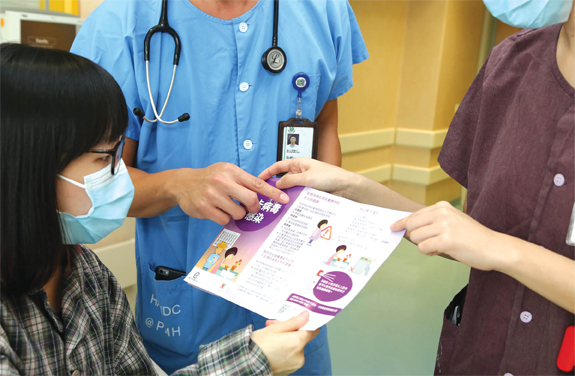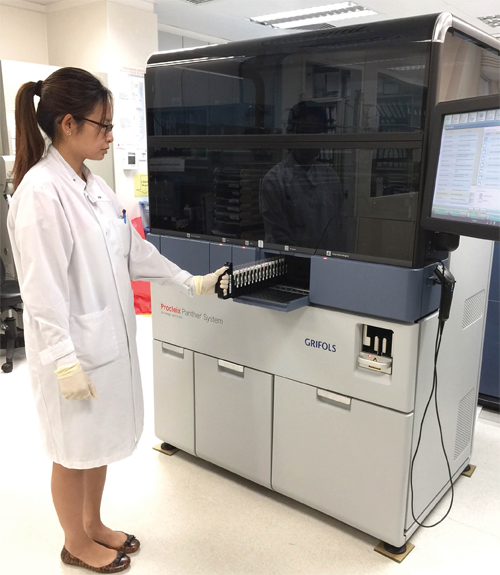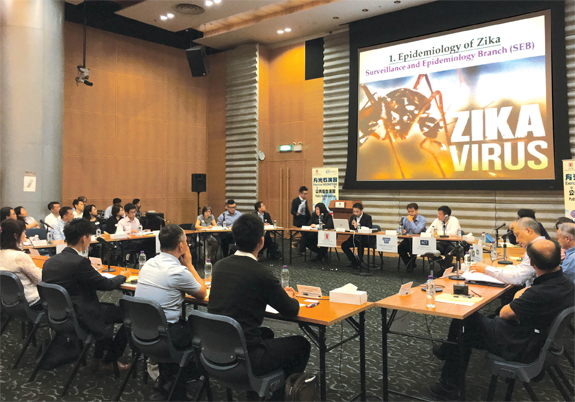
HA may adjust the patient management flow in case of dengue fever or Zika virus infection outbreak. Severe cases will be admitted to hospitals. (Stock photo)
Multi-pronged response to potential outbreak
Hot and humid weather in summer facilitates the breeding of mosquitoes. Whilst our neighbours in Southeast Asia are under the threat of various mosquito-borne diseases, the third confirmed Japanese encephalitis case this year was reported on 20 July. To tackle the threat of ‘small bite, big fright’, Hospital Authority has developed a comprehensive preparedness plan in response to potential outbreak of mosquito-borne diseases. Moreover, in cooperation with various government departments, HA has strengthened vector control to lower the risk of mosquito-borne diseases.
Hospital Authority maintains high vigilance against potential large-scale outbreak of mosquito-borne diseases and introduces multi-pronged preparedness and response plan covering the response system, clinical treatment, associated admission management and laboratory network. HA together with other government departments, have been closely monitoring the latest development in regional and global levels. In addition to routine mosquito control measures, enhanced anti-mosquito measures have been put in place all year long to prevent local spread of mosquito-borne diseases when a human infection case is confirmed.
Dengue fever, Zika virus infection, Japaneseencephalitis and malaria are listed as statutory notifiable diseases by the Department of Health (DH). The Centre for Health Protection (CHP) under DH has recorded a rise in number of confirmed dengue fever cases, with the figure doubling from 53 cases in 2012 to 124 cases in 2016. As at 12 July this year, there are 54 confirmed dengue fever cases and a sporadic number of Zika virus infection, Japanese encephalitis and malaria cases are confirmed. Dr Vivien Chuang, Associate Consultant of Chief Infection Control Officer Office says that given most of the cases are imported, details of the infected patients’ recent activities, including their symptoms, travel details and whether they were bitten by mosquitoes, are crucial for doctor to consider further diagnostic test and treatment.
Preparedness and response plans for dengue fever are divided into three outbreak stages – ‘sporadic’, ‘epidemic’ and ‘endemic’. For Zika virus infection, HA follows the government’s three-level response system: the response level will be raised from ‘alert’ to ‘serious’ when local infection is found. It will be further raised to the highest level of ‘emergency’ when high and imminent infection on local level occurs. The response plan will be coordinated and commanded by Central Command Committee, Emergency Executive Committee and Central Committee on Infectious Diseases and Emergency Response.
Andy Kung, Senior Manager (Infection, Emergency & Contingency), states that an outbreak of dengue fever and Zika virus infection may occur in which a large number of patients would rush to hospitals, burdening the Accident and Emergency Departments. Therefore, 16 ‘designated clinics’ will be assigned to play a key role in patient triage. HA may thence adjust the patient management flow if necessary. Suspected and confirmed patients with stable conditions will be followed-up at designated clinics, whereas severe cases will be admitted to hospitals.
Dr Chuang adds that Zika virus infection may lead to neonatal microcephaly through perinatal transmission. From mid-July this year onwards, 5,000 units of Zika-virus-screened blood and blood products can be provided for peri-partum pregnant women yearly, and the number could reach up to 10,000 if necessary.
Furthermore, HA Laboratory network will work with Public Health Laboratory Services Branch of the CHP to carry out diagnostic tests during outbreak. For instance, result of the diagnostic test for dengue fever and Zika virus infection will be delivered within 24 hours. And it is possible to further raise the laboratory test capacity when necessary.
To increase the alertness and enhance coordination of various stakeholders in guarding the city against Zika virus infection, HA joined the ‘Moonstone’ exercise, a simulation of a worker at the Container Terminal tested positive for Zika virus. The exercise was organised by the CHP in May this year.



